One emerging platform that has captured the attention of savvy marketers is WhatsApp. Since the advent of WhatsApp automation, it has become extremely convenient and easy to do redundant tasks.
With many users worldwide, WhatsApp has become an indispensable tool for businesses looking to enhance their customer engagement and drive tangible results.
However, managing WhatsApp-based communications manually can be time-consuming and resource-intensive, especially as a business scales.
This is where WhatsApp marketing automation comes into play – a game-changing solution that allows businesses to streamline their communication efforts and deliver personalized experiences at scale.
In this comprehensive guide, we'll walk you through the step-by-step process of setting up WhatsApp marketing automation, empowering you to leverage the power of Chatbot for WhatsApp.
Let's dive in!
Understanding the Benefits of WhatsApp Marketing Automation
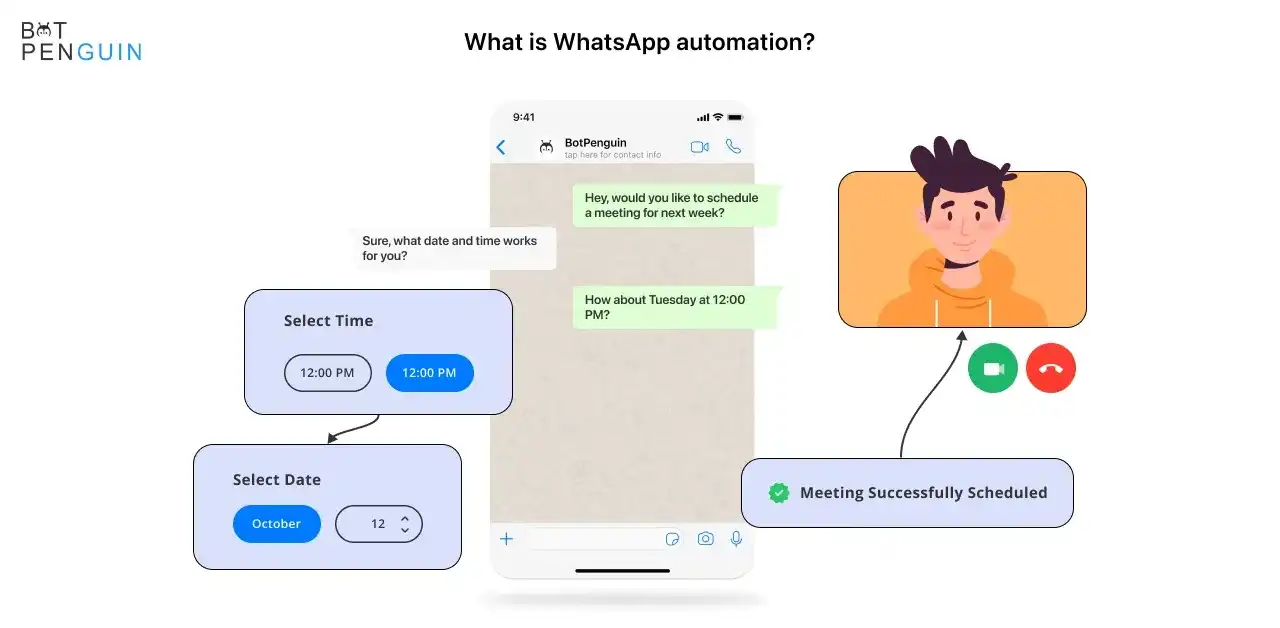
Here are the benefits of incorporating WhatsApp marketing automation into your overall strategy.
Improved Customer Engagement: WhatsApp marketing automation enables businesses to engage with customers in a more personalized and timely manner.
Businesses can provide immediate assistance by automating responses to common inquiries, enhancing the overall customer experience and fostering stronger relationships.
Enhanced Operational Efficiency: Manual WhatsApp communication can be time-consuming and prone to human error.
Increased Conversions and Sales: Automated WhatsApp messaging can be leveraged to deliver personalized product recommendations, exclusive offers, and timely updates – all of which can contribute to increased conversions and sales.
By creating a seamless, frictionless customer journey, businesses can capitalize on the power of WhatsApp to drive tangible business results.
Improved Data Insights: WhatsApp marketing automation solutions often come equipped with robust analytics and reporting capabilities.
Businesses can gain valuable insights to refine their strategies and make data-driven decisions by tracking customer interactions, message performance, and other key metrics.
Scalability and Flexibility: As a business grows, efficient and scalable communication channels become paramount.
WhatsApp marketing automation provides the flexibility to handle increasing customer inquiries and adapt to evolving business needs without compromising the quality of service.
Set up WhatsApp Marketing Automation
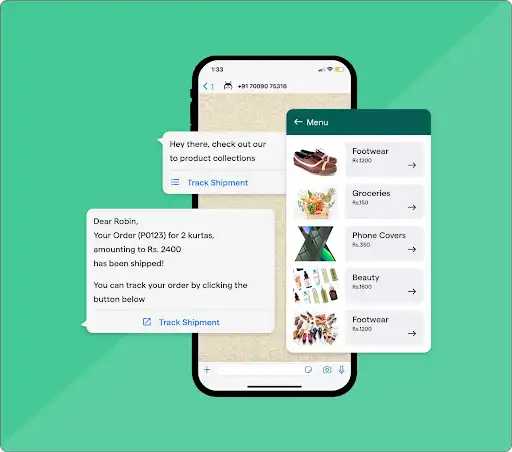
To fully leverage WhatsApp for marketing automation, you'll need the WhatsApp Business API.
This guide covers various ways to access the API, including through WhatsApp chatbots, to enhance your marketing efforts. Chatbots for WhatsApp help a great deal in automation.
Step 1
Determine Your WhatsApp Marketing Goals
Before setting up marketing automation through BotPenguin, defining your specific goals for using WhatsApp as a marketing channel is crucial.
Are you aiming to increase brand awareness, drive more sales, improve customer engagement, or perhaps all of the above?
Clearly outlining your objectives will help you develop a focused strategy and measure the success of your WhatsApp marketing campaigns.
Step 2
Obtain the WhatsApp Business API
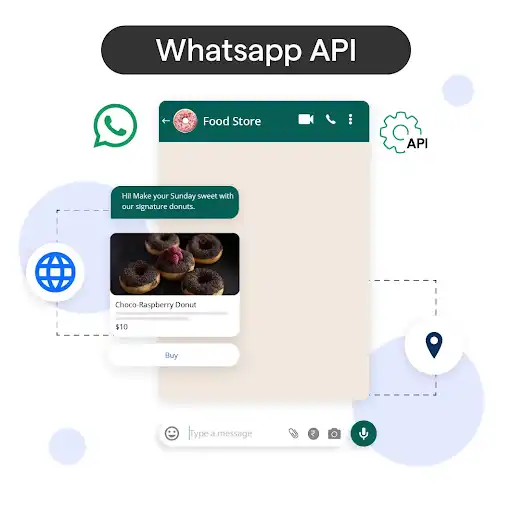
To unlock WhatsApp marketing automation's full capabilities, you'll need to obtain the WhatsApp Business API.
This advanced version of the WhatsApp Business app provides businesses with powerful features and integrations to streamline their communication efforts.
The WhatsApp Business API is not directly available to individual businesses; it is accessed through official WhatsApp Business Solution Providers (BSPs). These are third-party companies authorized by WhatsApp to offer APIs to businesses.
To get started, you'll need to research and evaluate various WhatsApp Business Solution Providers to find the one that best suits your business needs.
When making your selection, consider factors such as pricing, features, customer support, and integration capabilities.
BSPs provide a WhatsApp chatbot that allows businesses to access the WhatsApp API, enabling automated customer interactions and improved engagement.
Once you've chosen a BSP, they will guide you through setting up your WhatsApp Business API account and integrating it with your existing systems and workflows.
Here is a glimpse of how easily you can start your marketing automation With BotPenguin.
You can streamline your marketing efforts and achieve your desired outcomes. BotPenguin's intuitive interface and powerful features allow you to create highly engaging and personalized WhatsApp chatbot experiences for your target audience.
Here's how you can set up marketing automation with BotPenguin:
Sign up for a BotPenguin account, create a Chatbot for WhatsApp, and connect your WhatsApp Business API.
Use BotPenguin's visual builder to design conversational flows that align with your marketing goals, such as lead generation, product promotions, or customer nurturing campaigns.
Integrate your existing CRM, e-commerce platform, or other business tools with BotPenguin to ensure seamless data synchronization and a unified customer experience.
Segment your audience based on various criteria, enabling highly personalized and relevant messaging.
Use the WhatsApp chatbot to schedule and automate your marketing campaigns, drip sequences, and follow-up messages to maintain consistent customer communication.
Monitor performance metrics and analytics provided by BotPenguin to track your campaigns' success, identify improvement areas, and optimize your strategy accordingly.
By collaborating with BotPenguin, businesses can access Chatbot for WhatsApp to enhance WhatsApp marketing initiatives.
BotPenguin offers expertise in WhatsApp chatbot development and marketing automation, helping businesses utilize WhatsApp as an engaging and efficient marketing platform.
Step 3
Develop Your WhatsApp Marketing Automation Strategies
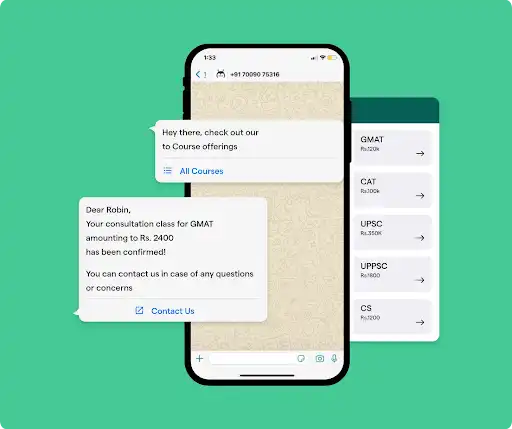
With the WhatsApp Business API in place, it's time to start crafting your WhatsApp marketing automation strategies.
This step involves identifying the specific use cases; message flows, and automation triggers that will drive your desired outcomes from WhatsApp chatbot.
Some common use cases for WhatsApp marketing automation include:
Automated Greeting and Onboarding Messages: Welcome new customers, provide information about your business, and guide them through the initial interaction. This can be done through Chatbot for WhatsApp.
Automated Customer Support and FAQs: Respond to frequently asked questions, provide order status updates, and handle general inquiries through WhatsApp chatbot
Automated Product Promotion and Sales Campaigns: Showcase new products, share exclusive offers, and drive targeted sales through personalized messages.
Automated Notifications and Alerts: Inform customers about shipping updates, appointment reminders, or any other time-sensitive information.
Automated Feedback and Survey Collection: Gather valuable customer insights by automating the process of collecting feedback and reviews.
To implement these use cases effectively, you'll need to create a series of pre-designed message templates, chatbot flows, and automation triggers that can be seamlessly integrated into your WhatsApp Business API account.
Suggested Reading:
Dos and Don'ts of Successful WhatsApp Marketing Campaign
Step 4
Integrate Your CRM and Other Business Systems
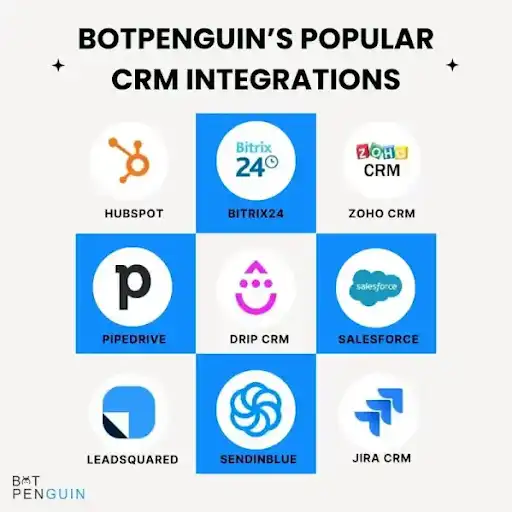
To maximize the effectiveness of your WhatsApp marketing automation, it's crucial to integrate your WhatsApp Business API with your existing customer relationship management (CRM) system and other relevant business tools.
By syncing your WhatsApp data with your CRM, you can:
Maintain a centralized, up-to-date customer database
Segment your audience for targeted messaging
Automate the sharing of customer information between platforms
Trigger specific actions or workflows based on WhatsApp interactions
Integrating your WhatsApp Business API with other business systems, such as your e-commerce platform, marketing automation software, or inventory management system, can further streamline your operations and provide a more holistic view of your customer interactions.
Look for WhatsApp Business Solution Providers that offer pre-built integrations or APIs that allow you to connect your WhatsApp automation with your existing tech stack seamlessly.
This will help ensure a smooth and efficient implementation process.
Suggested Reading:
Chatbots & Marketing Automation – the perfect duo?
Step 5
Craft Compelling WhatsApp Message Content
The success of your WhatsApp marketing automation largely depends on the quality and relevance of your message content.
Craft compelling, engaging messages that provide value to your customers and align with your brand's tone and voice.
Consider the following best practices for creating effective WhatsApp message content:
Use a personalized, conversational tone to build rapport with your customers
Incorporate relevant emojis, images, and other visual elements to make your messages more appealing
Provide clear calls-to-action (CTAs) that encourage customers to take the desired actions
Segment your audience and customize your messages to address their specific needs and interests
Keep your messages concise and focused, as WhatsApp users tend to prefer shorter, more direct communications
Remember, the goal is to create a seamless and enjoyable customer experience through your WhatsApp marketing automation, so invest time and effort into crafting high-quality, valuable content.
Step 6
Test, Optimize, and Iterate
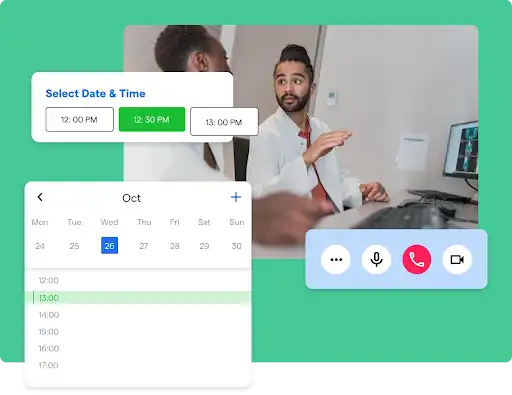
As with any marketing strategy, setting up your WhatsApp marketing automation is an ongoing process that requires continuous testing, optimization, and iteration.
Start by conducting thorough testing of your automated message flows, WhatsApp chatbot interactions, and integration with other business systems.
Based on your findings, make incremental adjustments to your messaging, automation triggers, and overall strategy.
Continuously gather customer feedback and leverage data-driven insights to refine your approach and ensure that your WhatsApp marketing automation is delivering the desired results.
Regularly review your WhatsApp marketing automation strategy, stay up-to-date with industry trends and best practices, and be willing to make changes as needed to maintain a competitive edge.
Conclusion
As businesses continue to navigate the dynamic landscape of digital marketing, the strategic implementation of WhatsApp automation has become very significant for driving client engagement, operational efficiency, and substantial business results.
Through this blog, companies can unlock the full potential of this omnipresent messaging platform and position themselves for long-term success throught Chatbot for WhatsApp.
One company that has emerged as a leader in the world of WhatsApp marketing automation and WhatsApp chatbots is BotPenguin.
With its suite of creative solutions, BotPenguin empowers businesses to seamlessly integrate WhatsApp into their omnichannel strategies, leveraging advanced features like chatbots, automated message flows, and robust analytics.
By partnering with BotPenguin, businesses can accelerate their WhatsApp marketing automation efforts, provide personalized experiences at scale, and eventually, drive sustainable growth in an increasingly competitive marketplace.
As you embark on your WhatsApp marketing automation journey, consider the Chatbot for WhatsApp offered by BotPenguin to maximize the effect of this powerful platform and position your business for long-term success.
Suggested Reading:
How to Implement Healthcare Marketing Automation?
Frequently Asked Questions (FAQs)
Why is WhatsApp marketing automation important for businesses?
WhatsApp marketing automation enables businesses to engage with customers in a more personalized and efficient manner, leading to improved customer experiences and enhanced operational efficiency.
WhatsApp chatbots enable increased conversions and sales, better data insights, and scalability to handle growing business demands.
How do I obtain the WhatsApp Business API to enable marketing automation?
The WhatsApp Business API is not directly available to individual businesses. Instead, businesses need to work with authorized WhatsApp Business Solution Providers (BSPs) to set up and integrate the API with their existing systems and workflows.
What are some common use cases for WhatsApp marketing automation?
Common use cases include automated greeting and onboarding messages, customer support and FAQ responses, product promotion and sales campaigns, notifications and alerts, and automated feedback and survey collection.
How can I integrate WhatsApp marketing automation with my CRM and other business systems?
By integrating your WhatsApp Business API with your CRM and other relevant business tools, you can maintain a centralized customer database, segment your audience, automate data sharing, and trigger specific actions or workflows based on WhatsApp interactions.
Look for BSPs that offer pre-built integrations or APIs to streamline the process.
How do I ensure the success of my WhatsApp marketing automation efforts?
To ensure success, focus on crafting compelling and valuable message content, continuously testing and optimizing your automated flows, and staying adaptable to changing customer needs and industry trends. Regularly review your strategy and leverage data-driven insights to refine your approach.
Additionally, consider partnering with a trusted solution provider like BotPenguin to leverage their expertise and Chatbots for WhatsApp.


